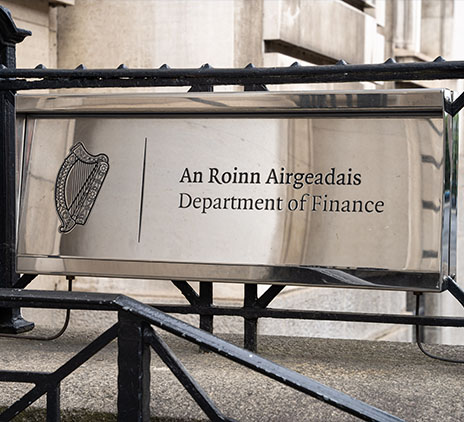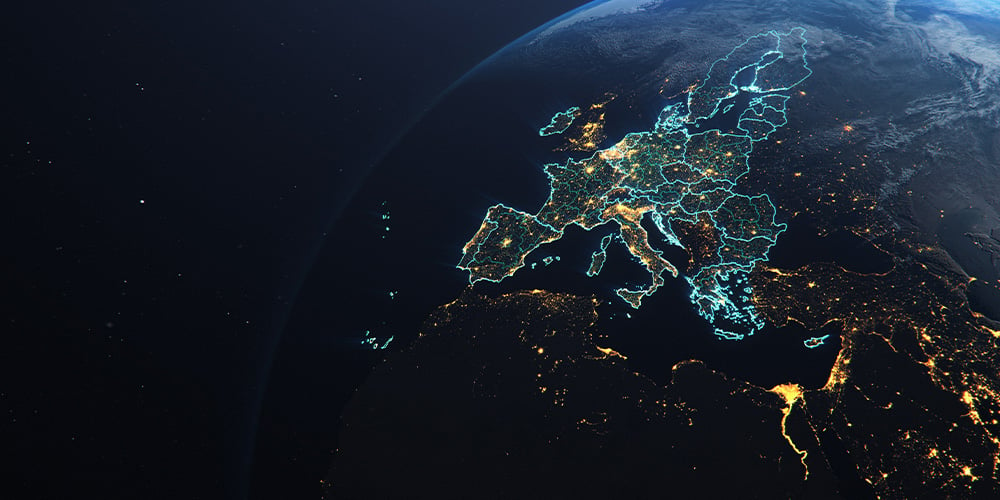-
Aviation Advisory
Our dedicated Aviation Advisory team bring best-in-class expertise across modelling, lease management, financial accounting and transaction execution as well as technical services completed by certified engineers.
-
Consulting
Our Consulting team guarantees quick turnarounds, lower partner-to-staff ratio than most and superior results delivered on a range of services.
-
Business Risk Services
Our Business Risk Services team deliver practical and pragmatic solutions that support clients in growing and protecting the inherent value of their businesses.
-
Deal Advisory
Our experienced Deal Advisory team has provided a range of transaction, valuation, deal advisory and restructuring services to clients for the past two decades.
-
Forensic Accounting
Our Forensic and Investigation Services team have targeted solutions to solve difficult challenges - making the difference between finding the truth or being left in the dark.
-
Financial Accounting and Advisory
Our FAAS team designs and implements creative solutions for organisations expanding into new markets or undertaking functional financial transformations.
-
Restructuring
Grant Thornton is Ireland’s leading provider of insolvency and corporate recovery solutions.
-
Risk Advisory
Our Risk Advisory team delivers innovative solutions and strategic insights for the Financial Services sector, addressing disruptive forces, regulatory changes, and emerging trends to enhance risk management and foster competitive advantage.
-
Sustainability Advisory
Our Sustainability Advisory team works with clients to accelerate their sustainability journey through innovative and pragmatic solutions.

-
 Asset management Asset management of the futureIn today’s global asset management landscape, there is an almost constant onslaught of change and complexity. To combat such complex change, asset managers need a consolidated approach. Read our publication and find out more about what you can achieve by choosing to work with us.
Asset management Asset management of the futureIn today’s global asset management landscape, there is an almost constant onslaught of change and complexity. To combat such complex change, asset managers need a consolidated approach. Read our publication and find out more about what you can achieve by choosing to work with us. -
 Internal Audit Maintaining Compliance with New EU Pension Directive IORP IIOn 28 April 2021, the Irish Government transposed IORP II (Institution for Occupational Retirement Provision), an EU directive on the activities and supervision of pension schemes, into law.
Internal Audit Maintaining Compliance with New EU Pension Directive IORP IIOn 28 April 2021, the Irish Government transposed IORP II (Institution for Occupational Retirement Provision), an EU directive on the activities and supervision of pension schemes, into law. -
 Risk, Compliance and Professional Standards FRED 82 – Periodic Updates to FRS 100 – 105The concept of a new suite of standards for the UK and Ireland, aligning with international financial reporting standards, was first conceived in 2002
Risk, Compliance and Professional Standards FRED 82 – Periodic Updates to FRS 100 – 105The concept of a new suite of standards for the UK and Ireland, aligning with international financial reporting standards, was first conceived in 2002 -
 Audit and Assurance Auditor transition: how to achieve a smooth changeoverAppointing new auditors may seem like a daunting task that will be disruptive to your business and a drain on the finance function. Nevertheless, there are a multitude of reasons to consider a change, including simply seeking a ‘fresh look’ at the business.
Audit and Assurance Auditor transition: how to achieve a smooth changeoverAppointing new auditors may seem like a daunting task that will be disruptive to your business and a drain on the finance function. Nevertheless, there are a multitude of reasons to consider a change, including simply seeking a ‘fresh look’ at the business.
-
Corporate Tax
Our Corporate Tax team is made up of more than 40 highly experienced senior partners and directors who work directly with a wide range of domestic and international clients; covering Corporation Tax, Company Secretarial, Employer Solutions, Global Mobility and Tax Incentives.
-
Financial Services Tax
The Grant Thornton team is made up of experts who are fully up to date in terms of changing and evolving tax legislation. This is combined with industry expertise and an in-depth knowledge of the evolving financial services regulatory landscape.
-
Indirect Tax Advisory & Compliance
Grant Thornton’s team of indirect tax specialists helps a range of clients across a variety of sectors including pharmaceuticals, financial services, construction and property and food to navigate these complexities.
-
International Tax
We develop close relationships with clients in order to gain a deep understanding of their businesses to ensure they make the right operational decisions. The wrong decision on how a company sells into a new market or establishes a new subsidiary can have major tax implications.
-
Private Client
Grant Thornton’s Private Client Services team can advise you on all areas of financial, pension, investment, succession and inheritance planning. We understand that each individual’s circumstances are different to the next and we tailor our services to suit your specific needs.


Receive the latest insights, news and more direct to your inbox.
Albeit an agreement on the final proposal has not been reached, the EU Council recently released some documents ahead of the latest EU Council of Finance Ministers (“ECOFIN”) meeting which has provided a roadmap as to how the reporting of EU VAT transactions is likely to look in the future.
We have summarised the main features below which can be categorised into three fundamental areas;
- E-invoicing and digital reporting: Impacting all businesses involved in Business to Business (“B2B”) trade across the EU.
- Online platform providers: Primarily in the accommodation and passenger transport sectors.
- A single EU VAT registration: Impacting businesses already registered for VAT in EU member states as non-established traders.
E-invoicing and digital reporting
Proposed implementation date of 1 July 2030.
For the supplier
- The supplier must issue an e-invoice for B2B EU sales within ten days of the date of the sale (or prepayment if earlier).
- The supplier is obliged to report specific data from the e-invoice for the supplies when issuing the e-invoice (subject to some exceptions).
- VIES (VAT Information Exchange System) provides a mechanism whereby checks can be made in each Member State on the validity of claims to zero-rating. It helps to detect unreported movements of zero-rated goods between Member States. Under ViDA, VIES are set to be abolished (also known as EC Sales Listings) and the supplier will no longer be required to prepare and submit same to the national tax authorities.
For the customer
The customer is obliged to report;
- intra-EU acquisitions of goods and;
- purchases of reverse charge services
within five days of the date of issuance of the e-invoice. It is expected that Member States can waive this requirement.
Online platform providers
Implementation date of 1 July 2027.
- The platforms will become the deemed supplier for VAT purposes, meaning the platform is responsible for accounting for the VAT arising. This applies to facilitating supplies of passenger transport and short-term accommodation, in cases where the underlying supplier is not required to account for VAT. It is anticipated that Member States can opt-out of making the platform a deemed supplier where the underlying supplier is a SME for VAT purposes (where certain criteria are met).
- The VAT exemption will not apply where accommodation is rented to the same person for a maximum of 30 nights (again, where certain criteria are met).
- Supplies falling within the Tour Operators’ Margin Scheme (“TOMS”) will not come within the remit of these new rules.
- The Import One Stop Shop (“IOSS”) will remain optional for online platforms and vendors.
Single EU VAT registration
Implementation date of 1 July 2027 [1]
- The Union One Stop Shop will be expanded to include all types of business to consumer (“B2C”) supplies.
- New OSS scheme for transfers of goods in line with original proposal. However, no exclusion for capital goods where owner is entitled to full VAT recovery (but subsequent adjustment required if subsequent self-supply or exempt use of those capital goods). Exclusion from OSS of all goods.
- Member States may apply reverse charge to supplies by a non-established supplier to a customer (even if not already VAT registered).
- VAT call-off stock simplification to be abolished.
What's next?
The next ECOFIN meeting is due to be held on 21 June 2024. At the May meeting, Estonia objected to some elements of the ViDA proposals, so it is hoped that unanimous approval from all 27 Member States will be the outcome of the imminent June meeting.
Please contact Janette Maxwell to discuss how these changes may impact your business and to begin the process of adapting to the inevitable changes coming down the line.
[1] Earlier effective date of 1 January 2026 for B2C supplies of electricity, natural gas, and cooling/heating by non-established suppliers.










